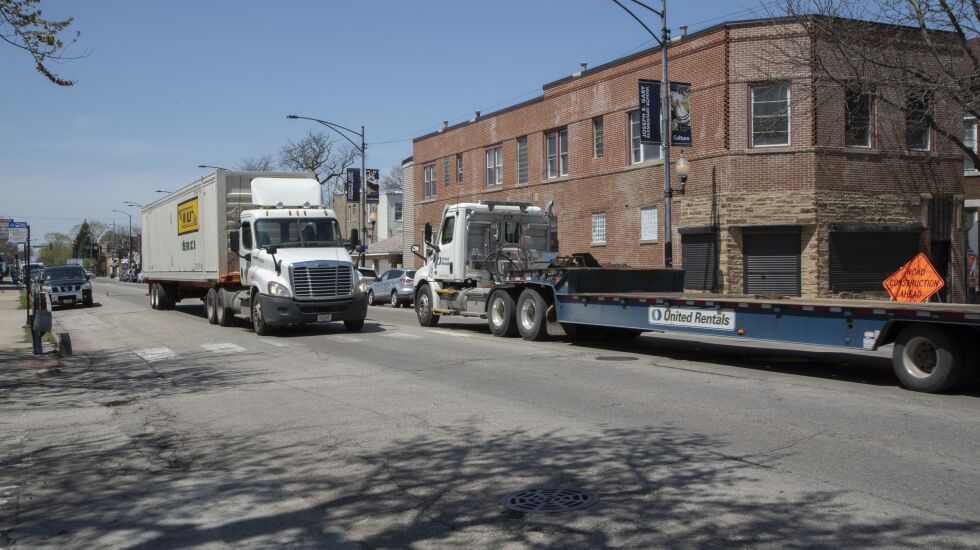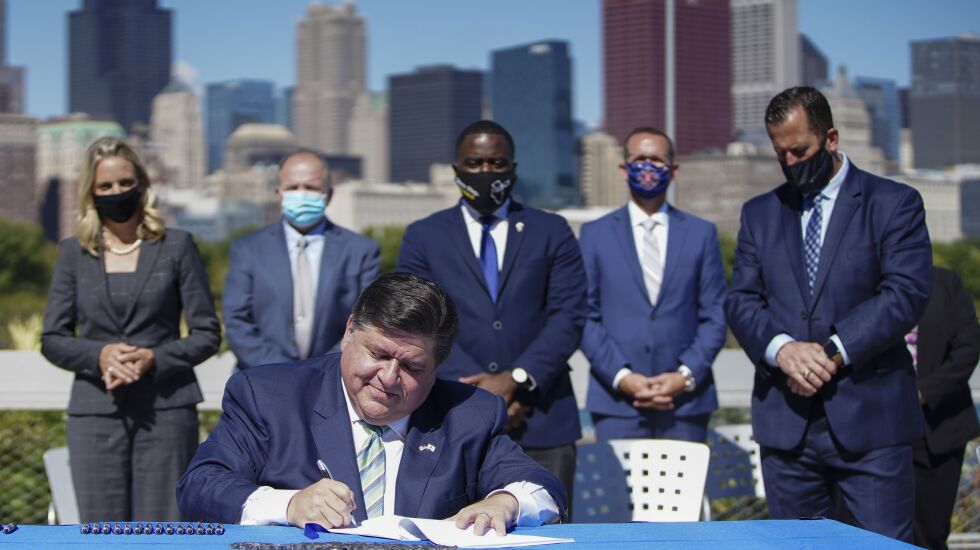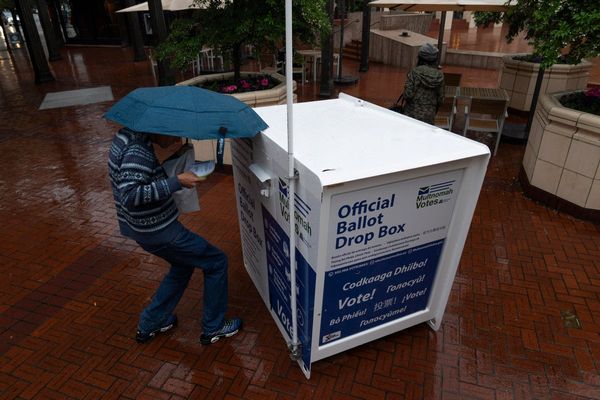
Pollution from diesel trucks will claim more than 400 lives across the state and make thousands of residents sick next year, making it crucial that Gov. J.B. Pritzker speed up Illinois’ transition to electric vehicles, a new report finds.
The Respiratory Health Association in Chicago is urging Pritzker to take steps to phase out diesel-fueled engines, including setting targets coming as soon as 2030. The demands may be a tough sell in an election year, and the governor’s office indicates Pritzker is concerned about such a transition’s impact on industry.
Fine particle pollution from trucks in the Chicago area and other parts of the state will cause 416 premature deaths, almost 200 heart attacks and thousands of respiratory problems, including emergency room visits, the respiratory group’s report found.
In the absence of a national policy from the U.S. Environmental Protection Agency, it’s important for states to act to cut the pollution from trucks, advocates say.
“The EPA is not doing it at the national level, so it’s fallen to the states and governors to make that happen,” said Brian Urbaszewski, director of environmental health programs for the health group.
The just-released report, The Dirty Dozen: The Impacts of Diesel Engine Pollution in Illinois, ranks Cook, DuPage, Will, Lake and Kane counties as the dirtiest in the state for diesel particle pollution. McHenry County is also in the top dozen. Other counties include Grundy, Kankakee, Kendall, DeKalb, Madison and Iroquois. The national organization Clean Air Task Force provided data for the analysis.
Around Chicago’s industrial corridors and other areas of the state with heavy truck traffic, the summer months can be particularly bad, adding to the urgency for Pritzker to act, Urbaszewski said.
“We’re going into the summer season, which is historically the highest pollution season,” he said.
Resolutions from the Illinois General Assembly last year urged Pritzker to sign a pact with 17 other states that would pledge targets for sales of electric zero-emission large vehicles. The pact, a memorandum of understanding, sets a goal to get 30% of new truck and bus sales to zero emission by 2030 and 100% by 2050.
Pritzker signed into law a major clean energy measure last year known as the Climate and Equitable Jobs Act, but that largely focused on eliminating fossil fuel sources and moving the state to renewable energy, including solar and wind power.
In a statement to the Sun-Times, Pritzker’s office said the governor’s staff is studying the multi-state MOU.
“The administration is currently studying the impacts of this MOU on businesses and industries across the state and looks forward to continuing our work to ensure Illinoisans will be able to enjoy their lives in a cleaner environment for years to come,” Pritzker spokeswoman Jordan Abudayyeh said in a statement.
The legislative resolutions didn’t appear to face opposition from business groups and, in fact, had support from two electric vehicle makers — Rivian Automotive Inc. and Lion Electric Co. — who have committed to adding thousands of manufacturing jobs in the state.
Pritzker joining the other states would “pave the way for thousands more clean energy and manufacturing jobs in the state,” Lion Electric Chief Executive Marc Bedard said in a statement last year.
No other Midwest state is part of the pact, which includes California, Colorado, Connecticut, Hawaii, Maine, Maryland, Massachusetts, Nevada, New Jersey, New York, North Carolina, Oregon, Pennsylvania, Rhode Island, Vermont, Virginia and Washington.

The need for cleaner trucks is particularly important in Chicago where more than two dozen industrial corridors draw thousands of trucks every day.
A recent analysis of air monitor data by the Sun-Times, WBEZ and the nonprofit newsroom MuckRock found a correlation between air pollution hotspots and proximity to the corridors. Little Village, in particular, showed several areas that suffered from high levels of air pollution.
A coalition of environmental, health and social justice organizations are calling for a city law to address the accumulation of pollution in communities across Chicago.
Mayor Lori Lightfoot’s administration has acknowledged the cumulative pollution burden in Chicago and recently announced a citywide study has been launched.
Separately, the city’s planning and transportation departments are studying truck traffic around seven industrial corridors on Chicago’s Southwest Side, a potentially significant development for residents who live in the area and encounter the huge volume of trucks.
“We are hearing from community stakeholders about priorities that may need to be addressed differently than they have been in the past,” a fall 2021 city slide presentation about the study stated.
The transportation, distribution and logistics industry “and related industrial activity is a critical part of the economy, but like many economic activities, it can place particular burdens on communities that need to be mitigated and addressed,” according to the presentation.
Brett Chase’s reporting on the environment and public health is made possible by a grant from The Chicago Community Trust.







